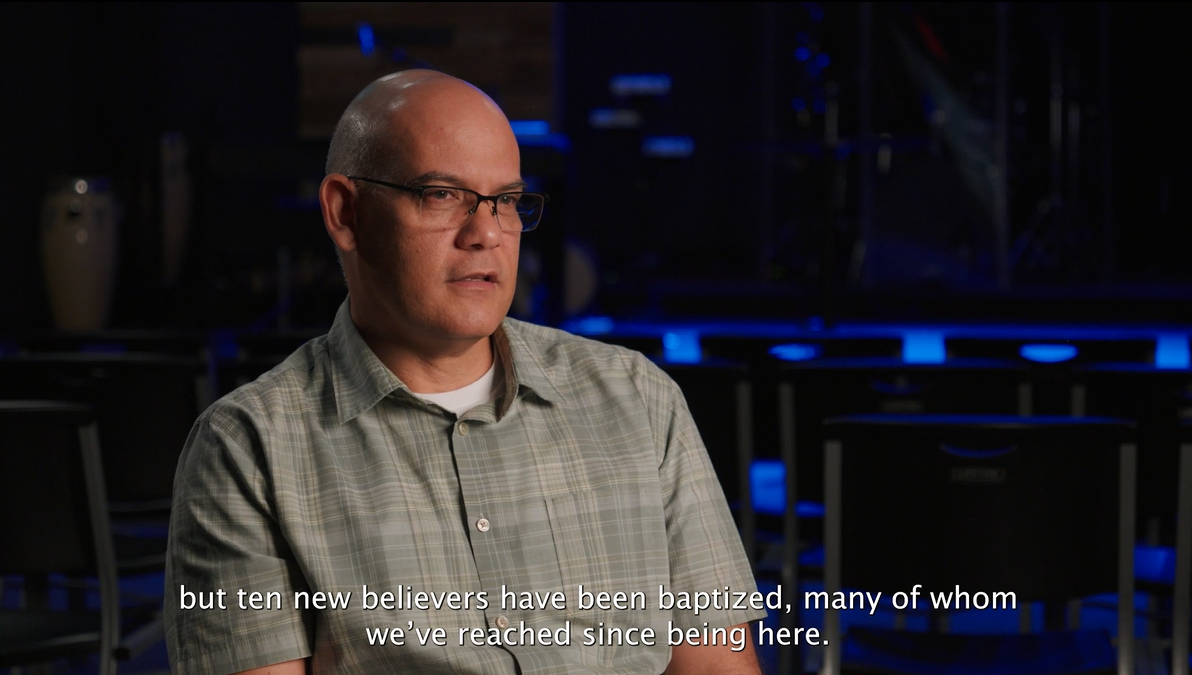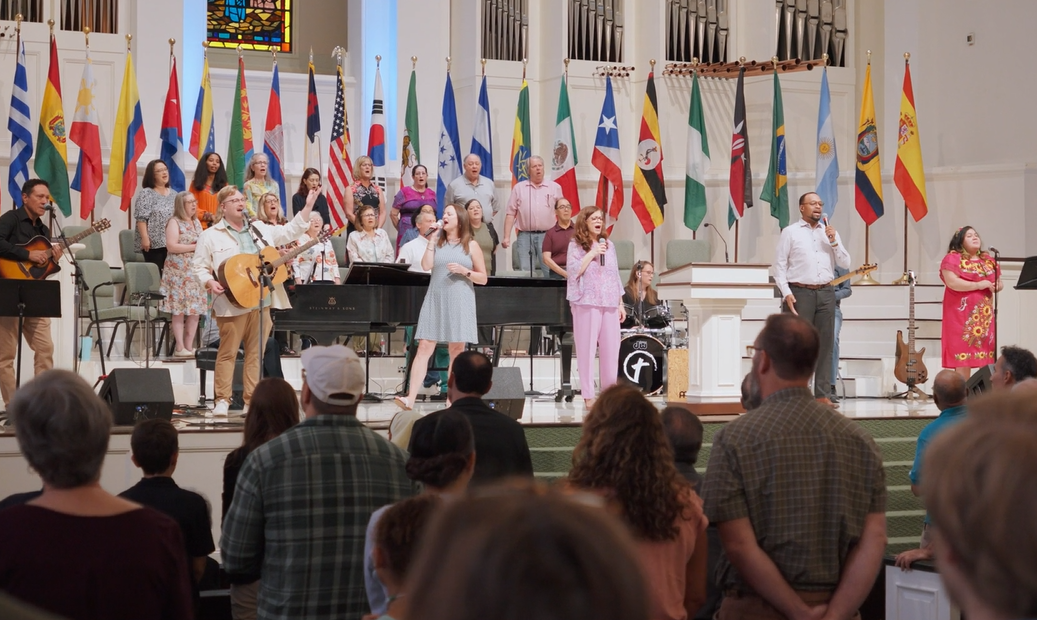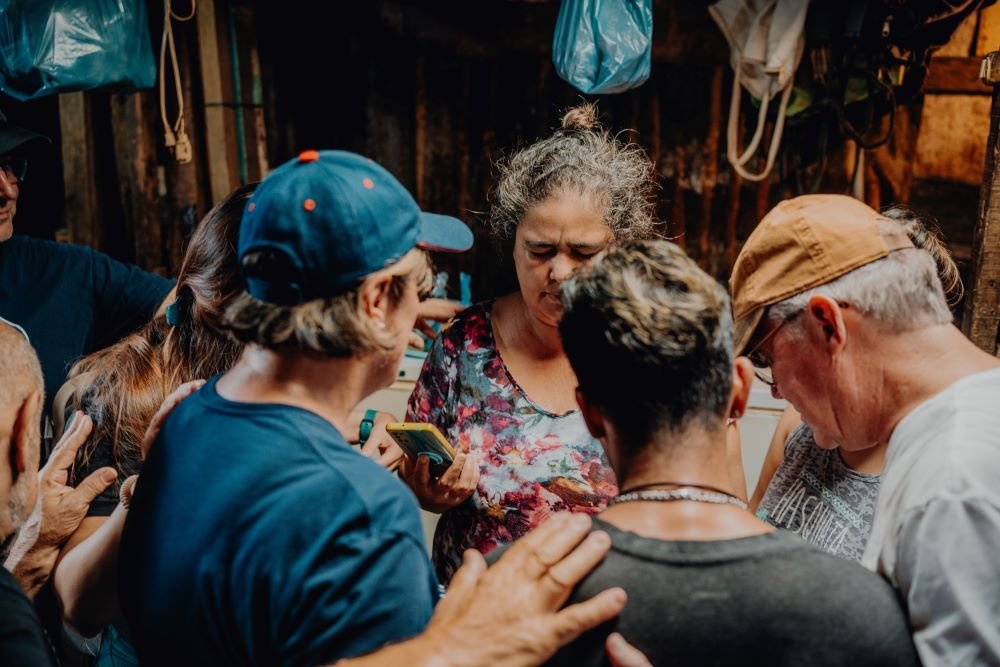Responding to the Refugee Crisis in 2025
What percentage of the global population today is an international migrant (someone living outside their birth country)? Put a number in your head…
The answer is around 3.7%. Is that more or less than you expected?
Now, guess what percentage of that immigrant number is a forced migrant. The answer is about 33%.
That’s right—one third of all migrants are on the move due to war, violence, and persecution. That’s 120 million forced migrants, almost one third of the population of the United States.
May the church rise up and care for refugees in our midst and around the world, for we, too, were once strangers.
What is a refugee?
Forced migrants can fall into several categories, including internally displaced persons, asylum seekers, and refugees.
An internally displaced person has fled their home but is still within the borders of their home country.
An asylum seeker has arrived at the border of a neighboring or third country and is seeking refuge. This lawful act is recognized by international law.
A refugee is unable or unwilling to return home due to a credible fear of persecution. Governments vet and grant this status based on race, religion, nationality, political belief, or membership of a particular social group. A refugee is displaced outside of the borders of their country of origin.
The United Nations estimates 43 million refugees globally. To put that into perspective, that’s roughly the entire population of Canada.
How do refugees arrive?
I feel called to welcome refugees. Refugees are not just anyone who wants to come to the US, but people made in the image of God who are fleeing for their lives. Since the 1970’s, the United States has been a beacon of hope and safety to 3.5 million refugees.
However, coming to our country is not as easy as you might think.
In any given year, less than 1% of refugees globally are “resettled”—given the legal right to move to a new country. The United States receives a fraction of 1% yearly.
The resettlement process can take years—the time it takes to vet and screen a refugee can take 18-24 months, and the average waiting time for refugee resettlement in the United States is approximately 20 years.
In the US, refugees are the most vetted immigrant group allowed to enter the country.
For the past 15 years, Houston has been a top receiving city for refugees.
Poorer countries “host” (without legal status or residency) most of the world’s refugees. Over the past decade, as the number of refugees has risen, the United States has decreased its commitment to caring for refugees, for mostly political reasons.
The US has a history of inconsistent and often exclusionary immigration policies. In current news, our government has created policies that separate families, remove due process, expedite deportation, revoke legal temporary protections, and block travel from countries facing the worst corruption and persecution.
How can the church respond?
The first place we should always consult is the Bible. It gives at least five compelling reasons to care for immigrants.
1. It is written in God’s law.
“When a foreigner resides among you in your land, do not mistreat them. The foreigner residing among you must be treated as your native-born. Love them as yourself, for you were foreigners in Egypt. I am the Lord your God” (Lev 19:33,34). Scriptures provide clear instruction to treat foreigners as well as we treat citizens.
2. Foreign-ness is part of our spiritual identification.
Looking at the “Hall of Faith” in Hebrews 11:13-14, we see “All these people were still living by faith when they died. They did not receive the things promised; they only saw them and welcomed them from a distance, admitting that they were foreigners and strangers on earth. People who say such things show that they are looking for a country of their own.”
3. Welcoming the stranger reflects our eschatological longing.
Hebrews 11:14-16 reads, “If they had been thinking of the country they had left, they would have had opportunity to return. Instead they were longing for a better country—a heavenly one. Therefore, God is not ashamed to be called their God, for he has prepared a city for them.” Like refugees, Christians are longing for a “better country.”
4. Caring for immigrants is a vicarious ministry toward Jesus.
Jesus says in Matthew 25:34-40, “For I was hungry and you gave me food, I was thirsty and you gave me drink, I was a stranger and you welcomed me… Truly, I say to you, as you did it to one of the least of these my brothers, you did it to me.'”. In caring for the vulnerable, it is like we are caring for Jesus himself.
5. Jesus himself was a refugee.
His family fled to Egypt to escape a murderous threat (Matt 2:13-18). Jesus was also a wanderer who carried out an itinerant ministry and relied on the hospitality of others for sustenance and the fulfillment of his mission.
The challenge before us: how do we address the crisis?
In a 2025 Lifeway survey, 73% of Christians say they have a responsibility to care sacrificially for immigrants, but only 28% have heard immigration discussions at church.
Here are a few ways to get started:
Education is key. Invite a speaker involved in refugee ministry to come share.
Volunteer. Get into the community and befriend a refugee.
Donate money to a resettlement agency or nonprofit that serves refugees.
Pray for refugees here in Houston to receive the care they need. Pray for refugees globally who face violence and persecution.
Houston’s Refugee Response: this is a newly created comprehensive webpage that promotes local opportunities and ideas for responding to the refugee crisis.
Ask yourself: What is one way you or your church could respond faithfully to the refugee crisis?
May the church rise up and care for refugees in our midst and around the world, for we, too, were once strangers.
If you’d like to learn more, I have created a script and editable slideshow (just download and edit) as a resource for pastors to use in their churches. World Refugee Day is June 20, so now is a great time to talk about caring for refugees.
Please reach out to me if you have any questions or if you are a church on the outskirts of Houston interested in hosting an informational event about Houston’s refugee response and are willing to invite 20 or so pastors.
Cindy M. Wu is co-founder and Director of Diaspora Ministries of Mosaic Formation. Her ministry focuses on serving the city, other pastors, and the church at-large. Cindy has published books and contributed to chapters on global Christianity and refugee welcome; she also dabbles in poetry.
Get better acquainted at cindymwu.com.











8 days of prayer for the health of each of our pastors.